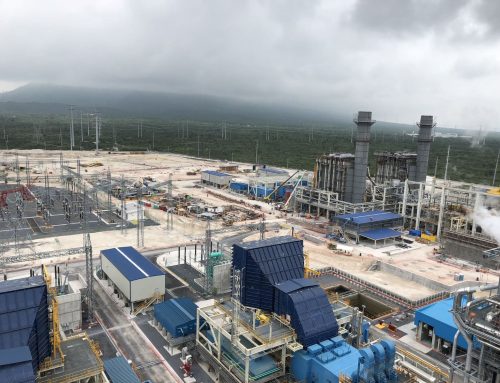Coal, oil and natural gas have long been the world’s most important energy sources. Many communities thrived around mines and drilling sites, and generations of people depended on hard workers who braved the cold, dark, and rough seas to keep the light in their homes. As the world moves toward renewable energy, it is important to educate energy workers so they can continue to access good-paying jobs and continue to support their families.
A Just Transition
More than 65 million people work in the energy sector and fossil fuel workers account for 1% of global employment. The renewable energy sector currently employs around half of all energy workers worldwide, and that number is growing rapidly.
In 2016, employment in the wind energy industry increased by 32%, while the number of people employed in the solar energy industry increased by a quarter. With so many job openings, many renewable energy companies are looking to current energy workers as potential new workers, especially with industries like coal in short supply.
Workers in the oil and gas industry often have skills that naturally translate to renewable energy jobs. For example, chemical engineers can help produce green hydrogen to fuel trucks. Petroleum engineers can apply their expertise to geothermal drilling operations, while offshore oil workers can use offshore facilities to capture and store wind energy, hydrogen and carbon dioxide.Fossil fuel workers also possess a number of other skills – physical resilience, a strong work ethic and the ability to get along with people – that are sought after by renewable energy companies.
During the transition to a renewable economy, it is important that workers in the energy sector do not become unemployed or lose pride in supporting their communities. How can fossil fuel workers transition smoothly from one job to another?
Federal Assistance
One way to ensure a just transition is for governments to provide training programs and grants to workers working in the renewable energy sector. In the USAFor example, the Economic Development Administration implements the POWER initiative to help communities previously dependent on changes in the coal industry. The initiative supports programs that promote entrepreneurship, workforce development and job creation outside of the coal sector. This government support can give workers access to training they might not otherwise be able to afford.
Programs like the Renewable Energy Tax Credit subsidize renewable energy for businesses and homeowners.Not only do they create jobs, but they also offer renewable energy companies better funding to train and retain new employees. In the United States, clean energy workers enjoy hourly wages that are up to 19% higher than the national average and earn between $5 and $10 more per hour even at the bottom of the income ladder.
Workforce Mapping
Predicting how many employees a company will need, where they will need them, and what roles they will play is a critical step in developing training programs for fossil fuel workers.Renewable energy companies can use this information to recruit and hire the right people.
Transition Centers
People whose jobs are coming to an end may need help figuring out what to do next. They may lack examples of successful change to use as a roadmap, and as such they may feel pessimistic or afraid of changing jobs.
Transition centers can guide workers in the energy sector through the process of transition to a new sector. They can provide training programs, financial support and advisory services to fossil fuel workers seeking employment in the renewable energy sector. Transition centers can also help workers obtain post-employment insurance or renewal benefits.
Accompanying changes
In addition to the decline in jobs in the traditional energy sector, new jobs in the field of renewable energy are emerging rapidly. Fossil fuel associates are among the best candidates for this position as they have the drive, experience and industry knowledge to make the transition smooth.
Regular company training in technical skills – such as installing solar panels or wind turbines – is enough to keep employees up-to-date. However, workers can also take advantage of official transition centres, government support and a comprehensive inventory conducted by employers. These strategies will provide fossil fuel workers with the greatest possible opportunity to change jobs while providing them with the support they deserve.
Original article by Jane Marsh is Editor-in-Chief of Environment.co:
https://www.powermag.com/training-fossil-fuel-workers-to-transition-to-renewables-industry/
Summary:
- How can fossil fuels workers seamlessly switch jobs? Federal Assistance One way to ensure a just transition is for governments to provide training programs and subsidies for renewable energy workers.
- Training Fossil Fuel Workers to Transition to Renewables Industry Coal, oil, and natural gas have a long history as the world’s primary energy sources.
- They can offer training programs, financial aid, and counseling services to fossil fuels workers looking for a job in renewable energy.
- With so many positions opening up, many renewable energy companies are eyeing existing energy workers as potential new hires, especially as industries like coal are hemorrhaging jobs.
- Fossil fuel workers also have a litany of other qualifications—physical endurance, a strong work ethic, and the ability to get along with people—that renewable energy companies are looking for.
- As the world transitions to renewable power, it is vital to train energy workers so they still have access to high-paying jobs and can keep providing for their families.
- A Just Transition More than 65 million people work in the energy industry, with fossil fuel workers accounting for 1% of global employment.




